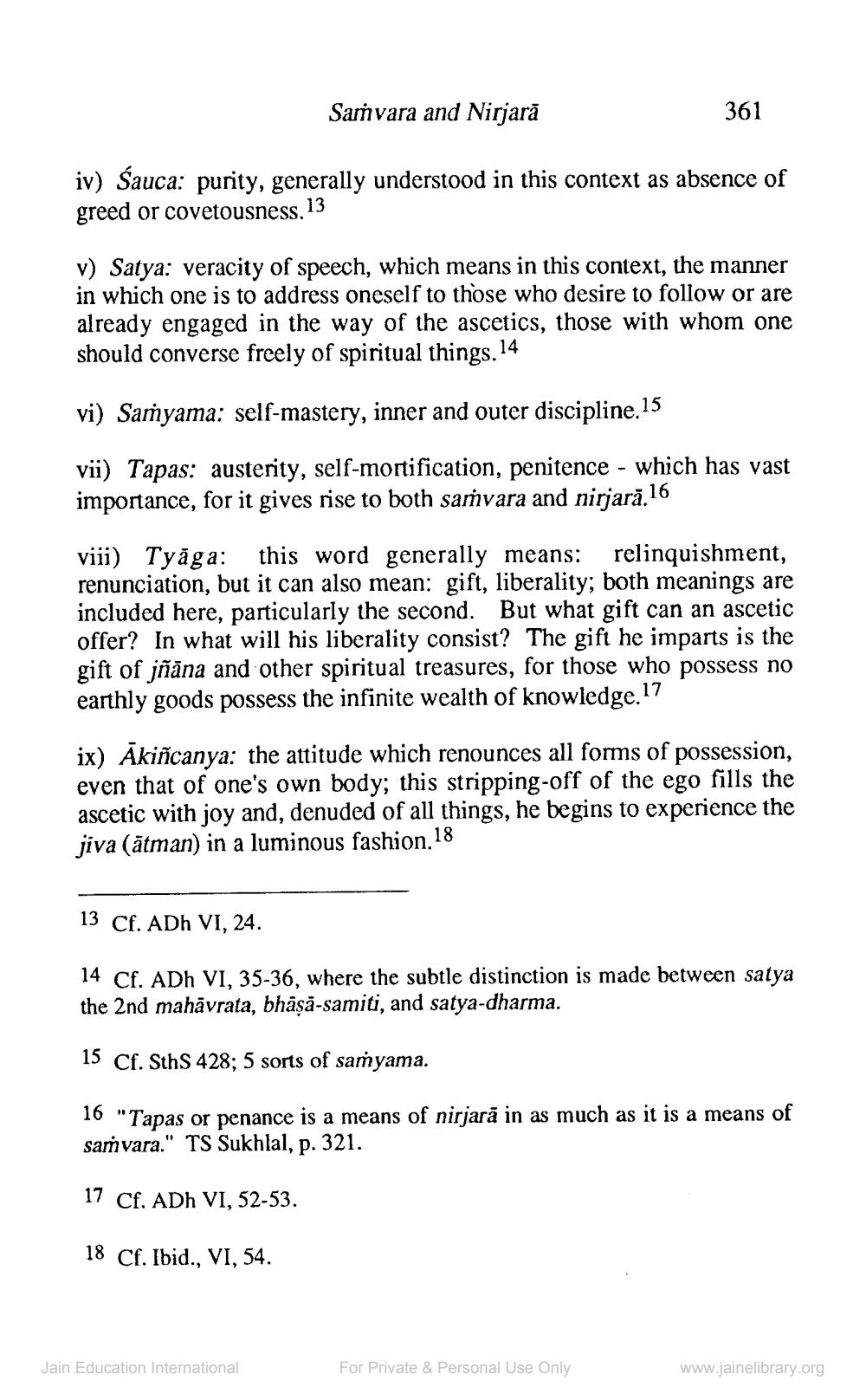________________
Samvara and Nirjarā
iv) Śauca: purity, generally understood in this context as absence of greed or covetousness.
13
v) Satya: veracity of speech, which means in this context, the manner in which one is to address oneself to those who desire to follow or are already engaged in the way of the ascetics, those with whom one should converse freely of spiritual things. 14
vi) Samyama: self-mastery, inner and outer discipline.1:
vii) Tapas: austerity, self-mortification, penitence - which has vast importance, for it gives rise to both samvara and nirjarā.16
361
15
viii) Tyaga: this word generally means: relinquishment, renunciation, but it can also mean: gift, liberality; both meanings are included here, particularly the second. But what gift can an ascetic offer? In what will his liberality consist? The gift he imparts is the gift of jñāna and other spiritual treasures, for those who possess no earthly goods possess the infinite wealth of knowledge.17
ix) Ākiñcanya: the attitude which renounces all forms of possession, even that of one's own body; this stripping-off of the ego fills the ascetic with joy and, denuded of all things, he begins to experience the jiva (ätman) in a luminous fashion.1
18
Jain Education International
13 Cf. ADH VI, 24.
14 Cf. ADH VI, 35-36, where the subtle distinction is made between satya the 2nd mahāvrata, bhāṣā-samiti, and satya-dharma.
15 Cf. SthS 428; 5 sorts of samyama.
16 "Tapas or penance is a means of nirjarā in as much as it is a means of samvara." TS Sukhlal, p. 321.
17 Cf. ADH VI, 52-53.
18 Cf. Ibid., VI, 54.
For Private & Personal Use Only
www.jainelibrary.org




